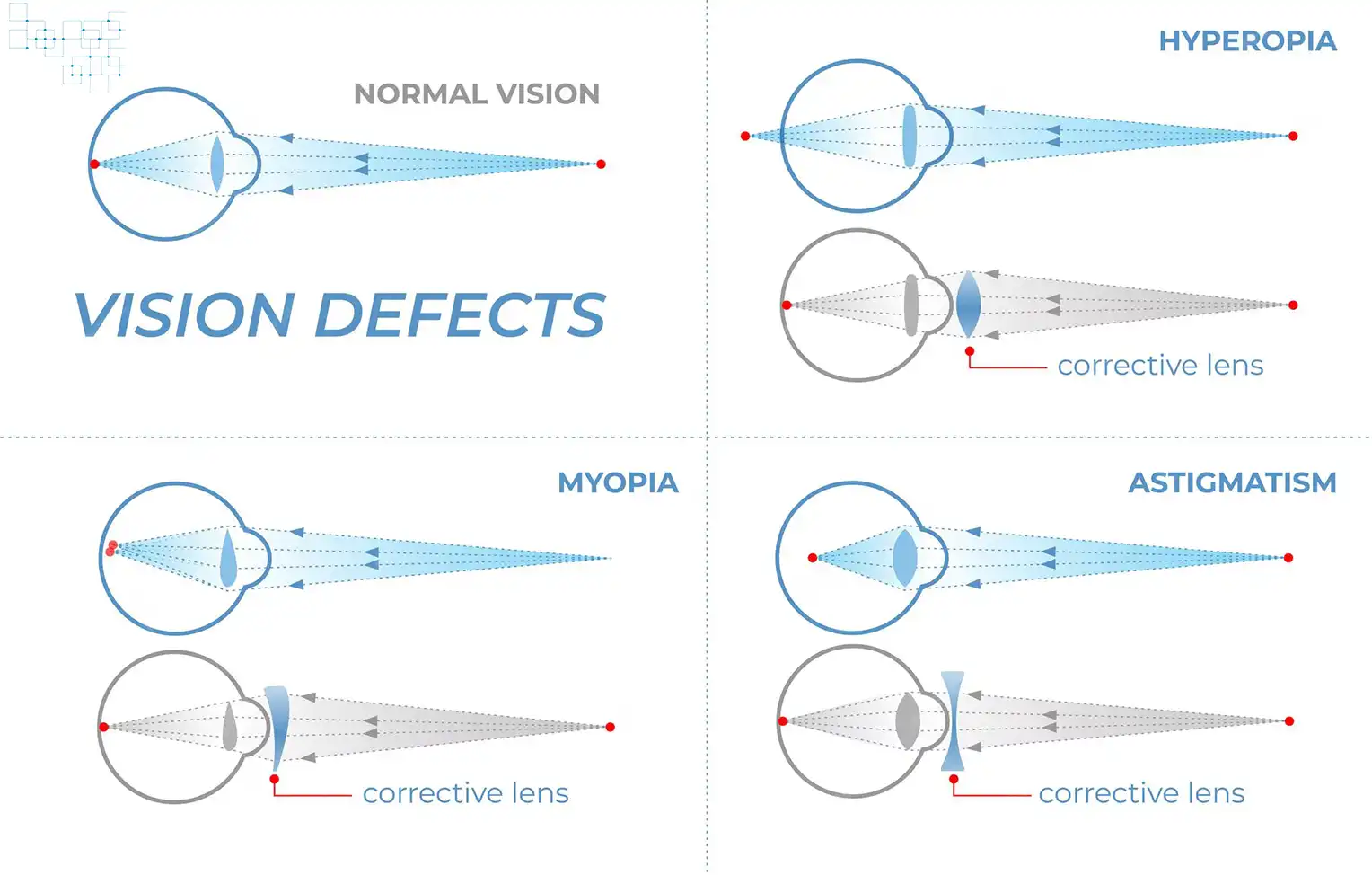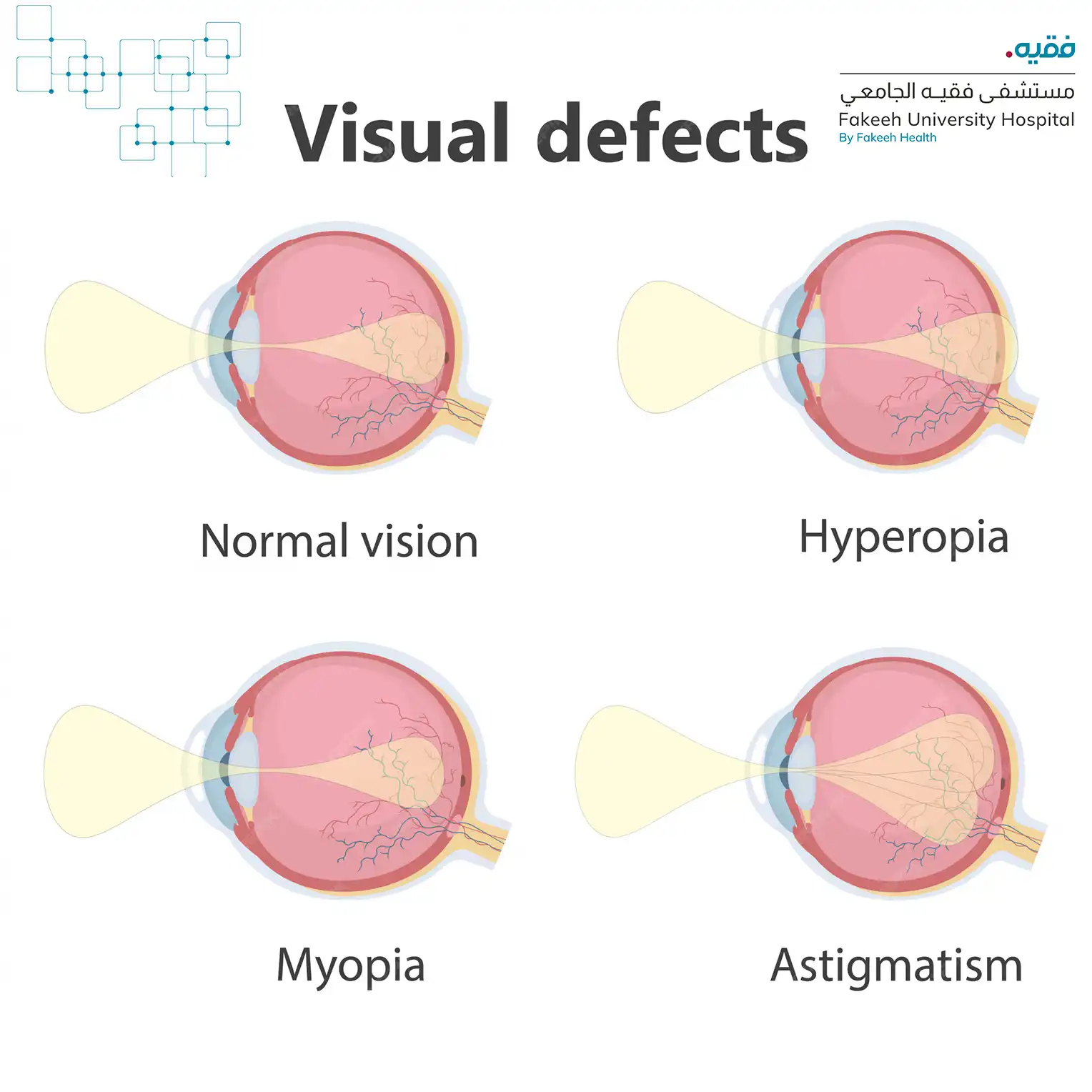
Astigmatism is a common refractive error that occurs when the cornea or internal lens of the eye has mismatched curves, preventing light from focusing evenly on the retina. This results in blurred or distorted vision at all distances. Astigmatism can occur alongside nearsightedness or farsightedness, and is often present from birth. In many cases, it’s mild and may not require treatment, but moderate to severe cases may need corrective lenses or surgery.
Astigmatism develops when the cornea or lens has an uneven curvature, causing light rays to focus at multiple points instead of one.
Astigmatism may be:
Myth alert: Squinting, reading in dim light, or sitting close to a screen do not cause or worsen astigmatism.

Common signs include:
If visual disturbances interfere with your daily activities, book an appointment with an ophthalmologist. Early diagnosis can prevent complications such as lazy eye (amblyopia).
Astigmatism can affect both adults and children. You may have a higher risk if you have:
If untreated, astigmatism can lead to:
Note: Surgical treatments may also carry temporary side effects like light sensitivity, night vision issues, and dry eyes.

Astigmatism is diagnosed through a comprehensive eye examination, which may include:
Surgical treatments reshape the cornea for long-term correction. Options include:

Astigmatism cannot be prevented, but regular eye check-ups can ensure early detection and timely correction. Protect your eyes from injury, follow post-surgery care instructions, and maintain a healthy lifestyle to reduce risks of worsening vision problems.
Our ophthalmology specialists use advanced diagnostics and treatment techniques to manage astigmatism and other vision conditions. From comprehensive eye exams to customised corrective solutions, we ensure your eye health is in expert hands.
📅 Book your eye check-up today at Fakeeh University Hospital, Dubai.